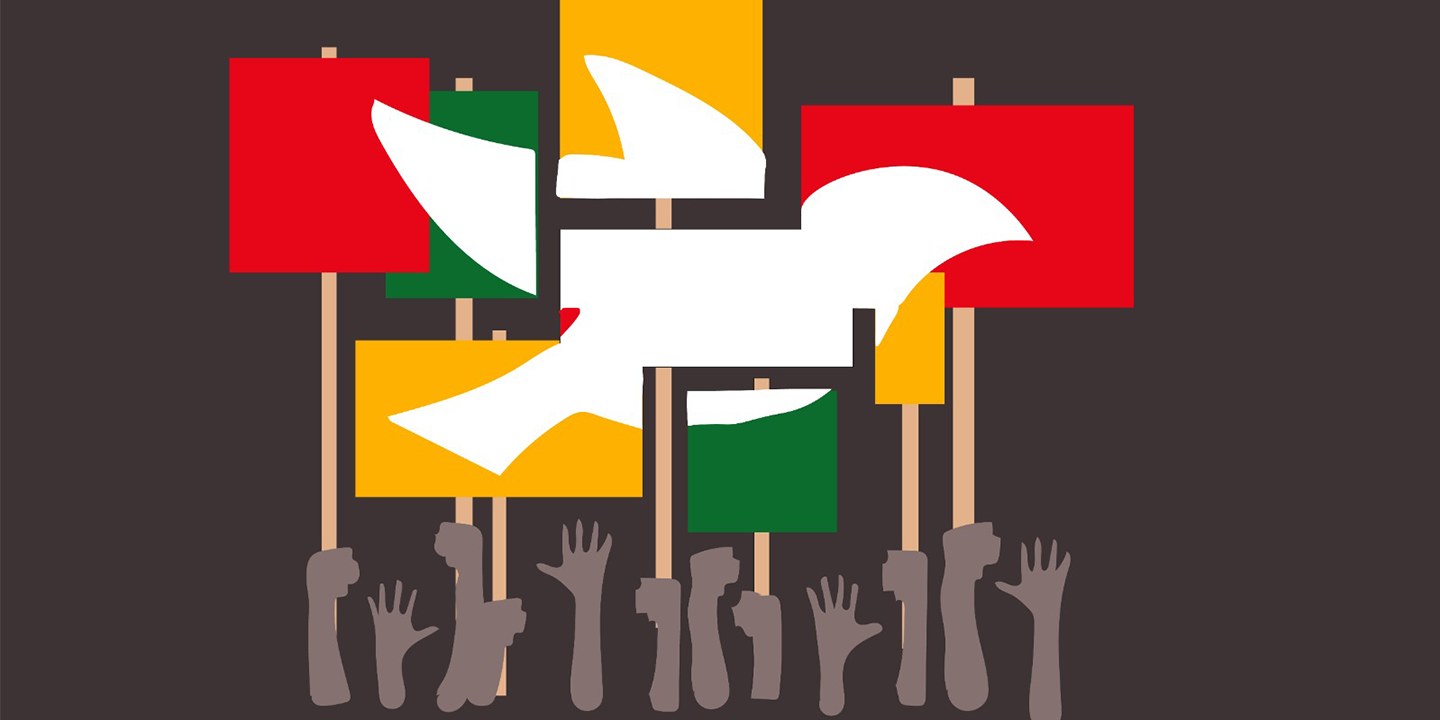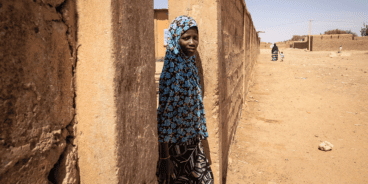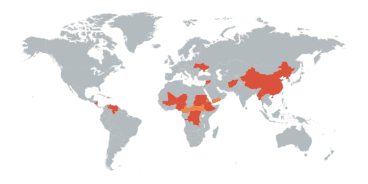

The crisis in Mali must be a wake-up call for a new response in the Sahel: Statement from the People’s Coalition for the Sahel
As members of the People’s Coalition for the Sahel, a group of civil society organisations from Mali, Burkina Faso, Niger and beyond, we stand together with the Malian people during the current political crisis. We call on the Malian authorities, the Economic Community of West African States (ECOWAS), the African Union and governments and institutions with influence in the region to ensure that any intervention puts the needs and rights of Mali’s most vulnerable people at its heart, and reinforces, rather than jeopardises, vital humanitarian, development, democratic governance, peacebuilding and human rights efforts in the country. Poorly-targeted sweeping sanctions are inconsistent with these aims, and instead risk penalising the entire population, hitting the most vulnerable, whose situation has already worsened in the wake of the COVID-19 pandemic.
The crisis in Mali is born of years of corruption, indifference, poor governance and alarming human rights violations by armed groups, self-defence militias and members of security forces with rampant impunity. This has caused widespread public discontent, distrust in the state’s authority and worsened the security situation. The prioritisation of a military response to a complex crisis, including massive attention and funding to the security aspects of the crisis, and countless new initiatives by the international community, has failed to protect civilians from atrocities, prevent further instability and alleviate inter-communal grievances.
The latest political crisis must be a wake-up call to Mali, the Sahel region and the international community that a new response is needed, radically refocused on populations’ needs, to address the growing destabilisation not only of Mali, but also of Burkina Faso, Niger and the wider Sahel region. Last month we came together as a new People’s Coalition for the Sahel to launch the ‘People’s Pillars’, setting out four key priorities that we believe must guide any response to the crisis in our region: protection of civilians, a comprehensive political strategy to address the root causes of instability, a massive increase in humanitarian aid, and accountability for violations by all actors. The recent events in Mali add a renewed urgency to our calls, demonstrating the futility of any approach that fails to put the people and the root causes of conflict at the centre of engagement.
In order to stabilise the country and restore the rule of law, we, as members of the People’s Coalition for the Sahel, urge the Malian authorities, ECOWAS, the African Union and other relevant governments and institutions with influence in the region to:
-
-
- Work closely with diverse communities and civil society, including women and youth groups, to develop a comprehensive time-bound political roadmap that puts the protection of civilians and human security at its heart, and addresses the root causes of the conflict, including the governance crisis. This should include a timeline for transition to a civilian-led government in Mali.
- Ensure that any intervention does not exacerbate the humanitarian crisis, nor impede humanitarian access and aid or the freedom of movement for the Malian population, including by ensuring inclusion of comprehensive humanitarian exemptions in any sanctions regime.
- Push for immediate action to ensure equal access to justice, combat impunity at all levels and advance transparent accountability mechanisms for all violations against civilians, including by armed groups and international military actors.
-
Signatories
- African Security Sector Network (ASSN)
- All Africa Conference of Churches (AACC)
- Association des Juristes Maliennes (AJM)
- Association Malienne des Droits de l’Homme (AMDH)
- Association Malienne pour la Survie au Sahel (AMSS)
- CARE International
- Centre Diocésain de Communication (CDC)
- Coordination des Associations des Femmes de l’Azawad (CAFA)
- Coordination Nigérienne des ONG et Associations Féminines du Niger (CONGAFEN)
- Cordaid
- Fédération Internationale pour les Droits Humains (FIDH)
- Global Centre for the Responsibility to Protect
- International Rescue Committee
- Institut malien de Recherche Action pour la Paix (IMRAP)
- Ligue Tchadienne des Droits de l’Homme
- Médecins du Monde
- Mouvement Burkinabé des Droits de l’Homme et des Peuples (MBDHP)
- Observatoire Kisal
- Open Society European Policy Institute (OSEPI)
- Oxfam International
- Plan International
- Première Urgence Internationale
- Réseau Nigérien pour la Gestion Non Violente des Conflits (RE-GENOVICO)
- Saferworld
- SOS-Civisme-Niger
- Transparency International Defence & Security
- WATHI, Think Tank citoyen de l’Afrique de l’Ouest
- West Africa Network for Peacebuilding (WANEP) Mali
Crise au Mali : un nouveau signal d’alarme pour la communauté internationale
Communiqué de la Coalition citoyenne pour le Sahel
En tant que membres de la Coalition citoyenne pour le Sahel, un groupe d’organisations de la société civile du Mali, du Burkina Faso, du Niger et d’au-delà, nous exprimons notre solidarité au peuple malien face à la crise politique actuelle. Nous appelons les autorités maliennes, la Communauté économique des États de l’Afrique de l’Ouest (CEDEAO), l’Union Africaine et les gouvernements et institutions ayant une influence dans la région à placer les droits et besoins des personnes les plus vulnérables au cœur de leurs interventions afin que celles-ci renforcent, plutôt qu’affaiblissent, les efforts vitaux déployés dans le pays en matière d’aide humanitaire, de développement, de gouvernance démocratique, de consolidation de la paix et de défense des droits humains. Nous alertons, en particulier, sur le risque que des sanctions mal ciblées, incompatibles avec ces objectifs, pénalisent l’ensemble de la population, notamment les plus vulnérables, dont la situation s’est déjà détériorée depuis le début de la pandémie de COVID-19.
La crise au Mali est le résultat d’années de corruption, d’indifférence, de mauvaise gouvernance et de violations alarmantes des droits humains commises en toute impunité par des groupes armés, des milices d’autodéfense et des membres des forces de sécurité. Cela a provoqué un mécontentement général de la population et une détérioration de la situation sécuritaire. La priorité donnée à une réponse militaire face à une crise complexe, notamment l’attention et le financement massifs accordés aux aspects sécuritaires de la crise, et les innombrables nouvelles initiatives de la communauté internationale, n’ont pas permis de protéger les civils des atrocités, de prévenir une plus grande instabilité et d’atténuer les griefs intercommunautaires.
Cette nouvelle crise politique doit constituer un signal d’alarme pour le Mali et la communauté internationale. Celle-ci doit maintenant trouver une nouvelle réponse, radicalement centrée sur les besoins des populations pour faire face à la déstabilisation croissante, non seulement du Mali, mais aussi du Burkina Faso, du Niger et plus largement de la région. Le mois dernier, nous nous sommes réunis au sein d’une nouvelle « Coalition citoyenne pour le Sahel » pour lancer les « Piliers citoyens », définissant quatre priorités clés qui, selon nous, doivent guider toute réponse à la crise dans la région : la protection des civils, une stratégie politique globale pour s’attaquer aux causes profondes de l’instabilité, une augmentation massive de l’aide humanitaire et la lutte contre l’impunité pour les violations commises par tous les acteurs. Les récents événements au Mali ajoutent une nouvelle urgence à notre appel en faveur d’un changement d’approche, en démontrant l’inefficacité de toute intervention qui ne donne pas la priorité aux populations et aux causes profondes du conflit.
Afin de stabiliser le pays et rétablir l’État de droit, nous, membres de la Coalition Citoyenne pour le Sahel, demandons instamment aux autorités maliennes, à la CEDEAO, à l’Union africaine et aux gouvernements et institutions ayant une influence dans la région de:
-
-
- Travailler en étroite collaboration avec les communautés et la société civile, y compris les groupes de femmes et de jeunes, afin d’élaborer une feuille de route politique complète, assortie d’échéances claires, qui place la protection des civils et la sécurité humaine au cœur de ses préoccupations et qui s’attaque aux causes profondes du conflit, notamment la crise de gouvernance. Cela devrait inclure un calendrier pour la transition vers un gouvernement civil au Mali.
- Veiller à ce que toute intervention n’aggrave pas la crise humanitaire, ni n’entrave l’accès et l’aide humanitaires ou la liberté de circulation de la population malienne, notamment en veillant à ce que des exemptions humanitaires complètes soient prévues dans tout régime de sanctions.
- Faire pression pour une action immédiate afin de garantir l’accès à la justice pour toutes et tous et lutter contre l’impunité à tous les niveaux, avec des mécanismes transparents pour toutes les violations commises contre les civils, y compris par des groupes armés et des acteurs militaires internationaux.
-
Related Content


Atrocity Alert No. 398: Central Sahel, Ukraine and Democratic Republic of the Congo
